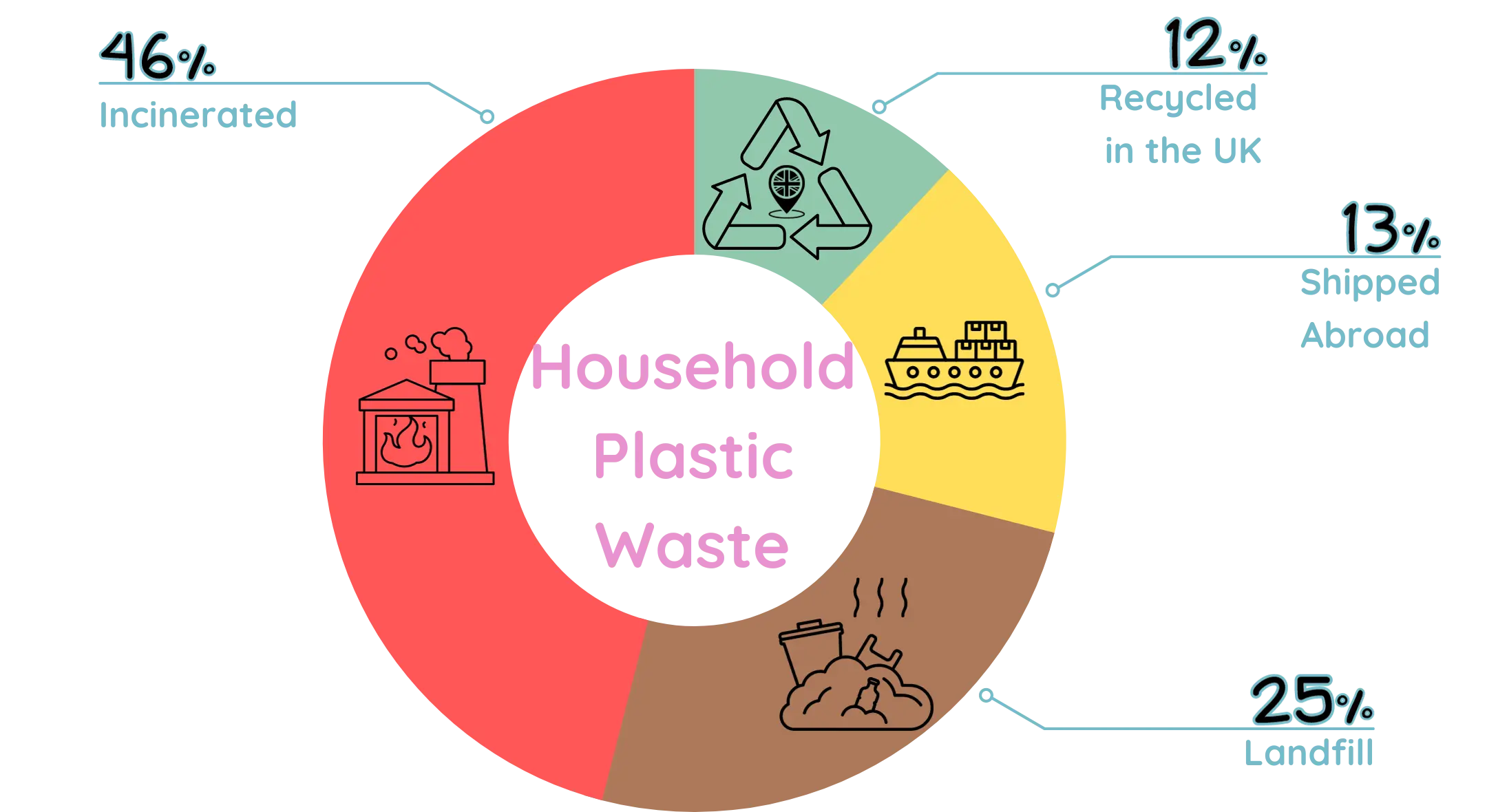Cling Film Free
Greenpeace and Everyday Plastic teamed up to study household plastic waste in the UK. The Big Plastic Count in 2022 revealed that each household threw away an average of 66 pieces of plastic packaging in one week, roughly 3,432 pieces a year.
In 2019, UK households used 311,000 tonnes of plastic film. Soft plastic is notoriously difficult to recycle. According to Recoup, only 13% of the 418 Local Authorities in the UK accept all types of plastic film.
The results highlight the overwhelming challenge faced by the UK's recycling system in managing the vast amount of plastic waste generated.

Recycling Industry
OECD found that globally, only about 9% of plastic waste gets recycled, while 22% is mismanaged.
According to a study published in the Journal of Hazardous Materials Advances, May 2023:
- There is a significant lack of understanding in recycling facilities' pollution potential.
- Plastic Recycling Facilities may be a source of microplastic pollution.
- The recycling processes create microplastic particles in wash water.
- Filtration can remove larger microplastic particles from facility discharge.
- The majority of these particles are less than 10µm (micrometers) and therefore environmentally relevant.
- Less than 5µm microplastic removal is necessary from recycling facility discharge.
It's crucial to verify and support findings from such studies to enhance our understanding of microplastic pollution and its implications.
So what can we do?
Switching to these alternatives allows individuals to contribute to a healthier planet for future generations by reducing plastic waste.
Beeswax Wraps
- Sustainable: Reusable and biodegradable.
- Adaptable: Versatile shapes and sizes.
- Hygiene Promotion: Natural ingredients extend freshness.
Beeswax Wraps
- Limited Lifespan: Reduced effectiveness over time.
- Food Restrictions: Not suitable for raw meat/hot foods.
- Maintenance Required: Delicate washing, mild soap.
Silicone Food Covers
- Durable: Long-lasting, reusable.
- Heat-Resistant: Microwave, freezer and oven safe.
- Sealability: Airtight, watertight, versatile cover sizes.
Silicone Food Covers
- Stiffness: Less adaptable to containers.
- Odor Retention: Absorbs smells, retains odours.
- Environmental Impact: Not biodegradable.
Stainless Steel Containers
- Durable: Long-lasting, resistant to corrosion.
- Safe Material: Non-toxic.
- Versatility: Dishwasher-safe, odour-resistant.
Stainless Steel Containers
- Heat Conductivity: Poor insulation.
- Weight: Heavier compared to others.
- Price: Higher upfront cost initially.
By making conscious choices in our everyday lives, we can collectively reduce the staggering amount of plastic waste. Small changes, such as opting for sustainable alternatives like beeswax wraps, silicone food covers, or stainless steel containers contribute significantly to a healthier planet. Let's embrace these eco-friendly options and pave the way for a more sustainable future for generations to come.
Every small choice we make today shapes the world we'll inhabit tomorrow.